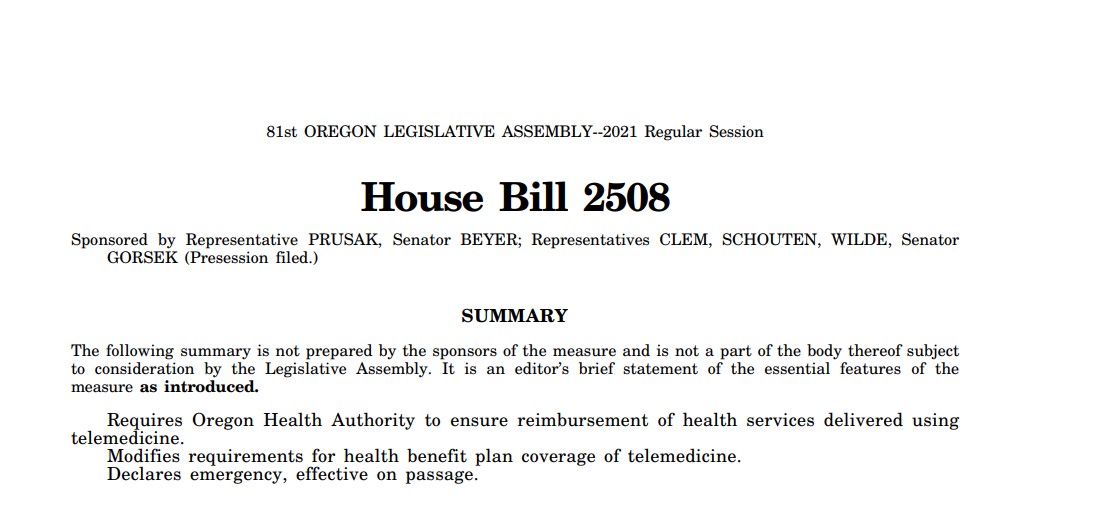
House Bill 2508 will expand telehealth for communities all over Oregon, providing easy access to health care in uncertain times.
The Oregon legislature has started their 2021 session and one of the upcoming bills, House Bill 2508 has the ability to expand students’ access to health care. HB 2508 would require Oregon Health Authority to reimburse medical services accessed through telehealth.
Without this reimbursement people would be paying out-of-pocket to access crucial care. Telehealth can be done over the internet, in face-to-face meetings, or it can be accessed through audio-only with just a phone. This bill would help Lane Community College students who are on Medicaid, Medicare, or Oregon Health Plan gain access to medical consultation without any extra cost.
Bill cosponsor, Senator Lee Beyer of Springfield, believes expanding this access would be beneficial to the students here at LCC.
“In the past, insurers were reluctant to pay for telemedicine or pay at a lower rate which made it less likely that providers would use the service. The result was it was harder to get time with doctors and less convenient for patients,” Beyer said. “In the area of mental health, providers found that in many cases, patients were more likely to make their appointments and consistency of care increased.”
Central Lane County Representative Marty Wilde, another co-sponsor of this bill, said that through telehealth expansion during COVID-19 almost 12,000 more Oregonians were able to access digital health care.
“Protecting telemedicine not only allows for greater access to rural areas who may have limited access to health care, but it also provides for greater access to all Oregonians by allowing for increased access to services,” Wilde said. “For example, a Lane student may need access to a specialist in Portland. Under this bill a telemedicine visit would be covered the same as an in-person visit and would save the student travel time and cost.”
According to testimony from the Oregon Rural Health Association, not only does telehealth expand access to rural communities, but it can save money for patients. If people are able to easily get in touch with their doctors they can manage their chronic conditions and avoid emergency room visits. Rural communities often don’t have all the specialists that patients need. Telehealth means a patient can speak to doctors all over the state without having to leave their couch.
Maya Ordway, a 21-year-old University of Oregon student and part time restaurant host, uses telemedicine to see her therapist. Telehealth has been easy to access; all she needs is a computer and wifi. It’s also affordable. It costs only $15 a session — the same cost as seeing her therapist in person. Ordway does feel that telehealth can make her bedroom feel like a therapist’s office, but she has appreciated being able to connect with her doctor during the pandemic.
HB 2508 has already been heard in committee with supportive testimonies from organizations such as Planned Parenthood, Oregon Community Health Information Network, Children’s Health Alliance and many other health care advocacy groups across the state. It is moving to a work session on the house floor and Rep Wilde anticipates that it will pass with bipartisan support. This bill does not have any significant financial impact meaning it will expand health care access without costing taxpayers any extra money.


